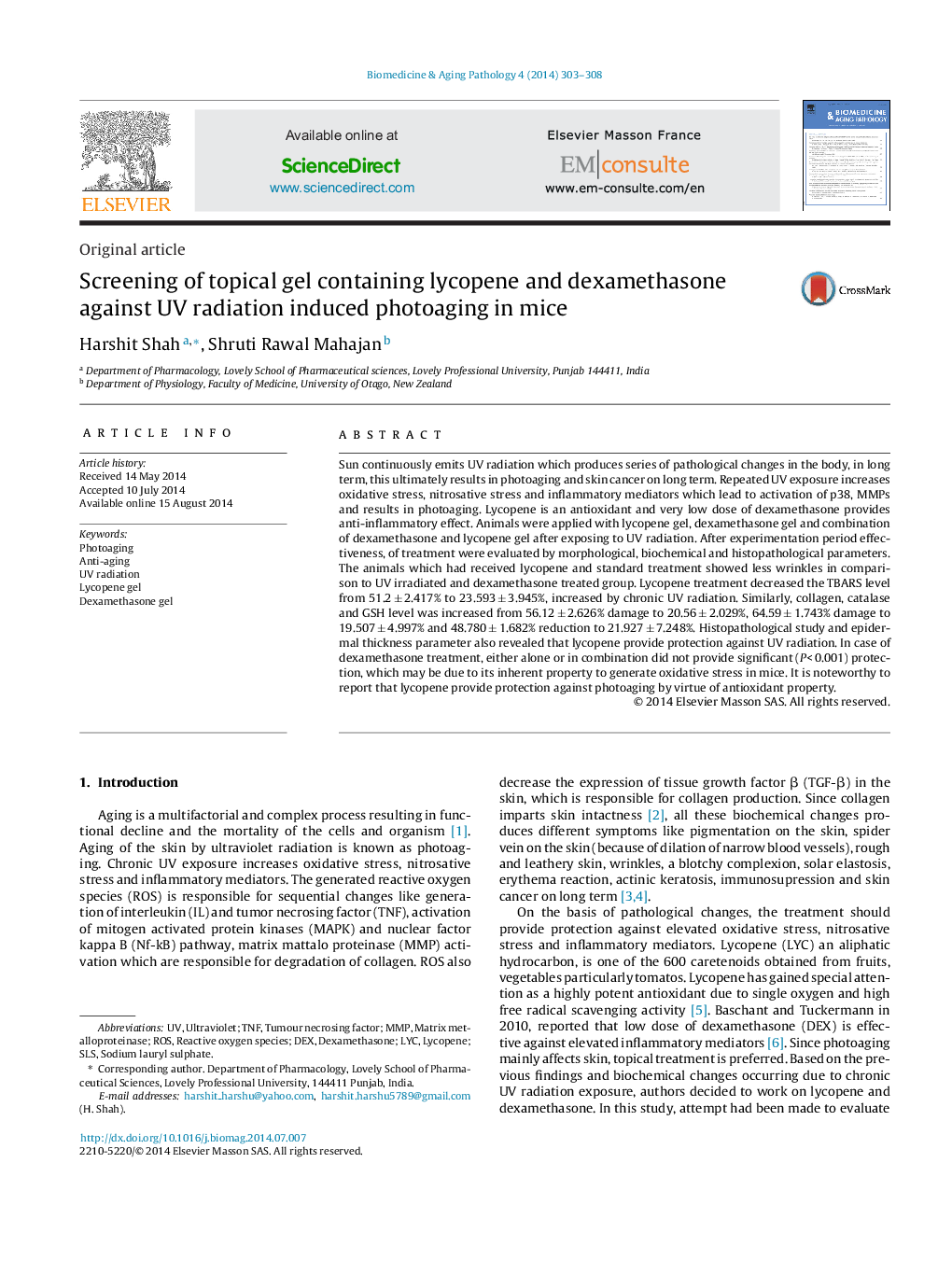| Article ID | Journal | Published Year | Pages | File Type |
|---|---|---|---|---|
| 2576174 | Biomedicine & Aging Pathology | 2014 | 6 Pages |
Abstract
Sun continuously emits UV radiation which produces series of pathological changes in the body, in long term, this ultimately results in photoaging and skin cancer on long term. Repeated UV exposure increases oxidative stress, nitrosative stress and inflammatory mediators which lead to activation of p38, MMPs and results in photoaging. Lycopene is an antioxidant and very low dose of dexamethasone provides anti-inflammatory effect. Animals were applied with lycopene gel, dexamethasone gel and combination of dexamethasone and lycopene gel after exposing to UV radiation. After experimentation period effectiveness, of treatment were evaluated by morphological, biochemical and histopathological parameters. The animals which had received lycopene and standard treatment showed less wrinkles in comparison to UV irradiated and dexamethasone treated group. Lycopene treatment decreased the TBARS level from 51.2 ± 2.417% to 23.593 ± 3.945%, increased by chronic UV radiation. Similarly, collagen, catalase and GSH level was increased from 56.12 ± 2.626% damage to 20.56 ± 2.029%, 64.59 ± 1.743% damage to 19.507 ± 4.997% and 48.780 ± 1.682% reduction to 21.927 ± 7.248%. Histopathological study and epidermal thickness parameter also revealed that lycopene provide protection against UV radiation. In case of dexamethasone treatment, either alone or in combination did not provide significant (P< 0.001) protection, which may be due to its inherent property to generate oxidative stress in mice. It is noteworthy to report that lycopene provide protection against photoaging by virtue of antioxidant property.
Keywords
Related Topics
Health Sciences
Medicine and Dentistry
Geriatrics and Gerontology
Authors
Harshit Shah, Shruti Rawal Mahajan,
